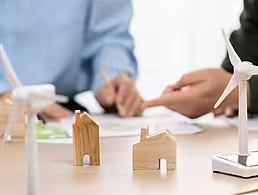Hays’ Roddy Adair highlights the importance of cultivating self-confidence – a key skill for employees during Covid-19.
Most of us, at some stage or another, question ourselves. We question our abilities, our skill, our judgement. We worry that we’re not good enough. We listen to the self-deprecating thoughts buzzing around in our minds and we take those thoughts to heart. After all, we’re all human and all of us experience a dent to our self-confidence sometimes – some more regularly than others.
But as we emerge into a completely new era of work, do the current changes risk limiting our self-confidence even further? A new hybrid working world, in which employees that may have once worked all together now work different hours and from different locations, requires a slightly nuanced skillset in order to be successful.
To work well in a hybrid team, you’ll need the following soft skills: collaboration, communication, adaptability, an agile way of working, self-motivation, self-discipline, time management and punctuality.
Of course, there are many soft skills missing from this brief list, but one key skill that is sometimes overlooked in this context is the need to be self-confident; the need to have faith in your own abilities, skills and judgement.
How a lack of confidence can hold you back
I can’t think of an event in recent history that has sparked so much change in such a short period of time. Much of that change has impacted the daily working lives of many of us – the tasks we’re responsible for, the way we communicate, when we work and where we work from.
There are so many new changes to digest and new ways of working to learn that building our self-confidence is key if we are to adapt to these quickly and be successful in this new era.
The areas in which a lack of self-confidence could prove to be a barrier when working during this challenging time include:
- Getting to grips with new technological tools that you might not have used before
- Presenting your work via a virtual meeting
- Maintaining a good relationship with your manager and colleagues remotely or while social distancing
- Raising any challenges you’re facing in terms of your wellbeing, mental health or workload with your manager, perhaps remotely
- Crafting your role to support changed or new objectives, or to better support other teams or departments
- Setting a daily schedule that prioritises your wellbeing but keeps your productivity high
How to become more self-confident when working from home
Self-confidence is a skill. It’s something we can all master with learning, practice and persistence. Think about it: if you lack confidence in public speaking and make a concerted effort, your confidence will improve over time.
So how can we train ourselves to become more confident and, in turn, optimise how well we work now? Of course, a lot of this will come from finding your feet and establishing new routines and rituals, but there are a few tricks you can try.
- Develop a growth mindset and see challenge or failure as an opportunity to learn
- Appreciate what you’re good at and where your unique strengths lie, and remind yourself of these daily
- Be self-aware regarding your negative self-deprecating thoughts and keep your inner critic in check
- Always set daily goals, broken down into smaller tasks, and work towards achieving these each day – tick them off as you go along and consider each completed task as an accomplishment
- Celebrate and acknowledge any small wins or positive feedback – consider creating a ‘smile file’ that you can refer to when you have a tough day or share any successes with a colleague or friend
- Always be honest about how you’re feeling with your close network as they will help give you a boost when you need it
- Step outside your comfort zone and challenge yourself from time to time, and acknowledge the bravery it takes to do so
- Give yourself autonomy by setting a structure for your day, learning new skills and looking after your wellbeing
When working to build your self-confidence, remember: what you’re doing is perfecting a skill – the more you practise these habits, the more self-confident you’ll become. It’s that simple.
By Roddy Adair
Roddy Adair is the personal and executive assistants director at Hays UK. A version of this article previously appeared on the Hays Viewpoint Blog.




